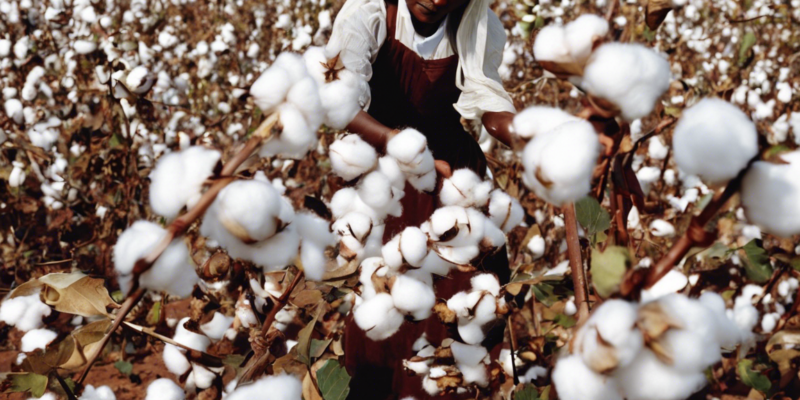Introduction
Welcome to World Cotton Day! On this special occasion, it’s important to reflect on the rich history and significance of cotton in our global society. From its humble beginnings thousands of years ago to its current status as one of the most widely used fibers in the world, cotton has played a pivotal role in shaping cultures, economies, and industries.
History of Cotton
Origins: Cotton cultivation dates back to ancient times, with evidence of its use found in regions such as India, Egypt, and China as early as 3000 BC. The cotton plant thrived in warm, tropical climates and soon became a valuable commodity for trade.
Expansion: The popularity of cotton grew steadily over the centuries, with the expansion of trade routes facilitating its spread to different parts of the world. European explorers and colonizers played a significant role in the global dissemination of cotton, introducing it to regions such as the Americas.
Industrial Revolution: The invention of the cotton gin by Eli Whitney in the late 18th century revolutionized the cotton industry by significantly increasing the efficiency of separating seeds from the cotton fibers. This innovation led to a boom in cotton production and paved the way for the industrialization of textile manufacturing.
Impact on Economies
Key Players: Today, cotton is produced in over 100 countries, with major producers including the United States, China, India, and Pakistan. These countries play a crucial role in meeting the global demand for cotton and driving the industry’s growth.
Economic Importance: Cotton remains a vital cash crop for many economies, providing income for millions of farmers and supporting numerous industries, from textiles to fashion. The cotton trade contributes significantly to the GDP of producing countries and plays a key role in employment generation.
Challenges and Sustainability
Environmental Concerns: Despite its economic importance, cotton cultivation is not without its challenges. The intensive use of pesticides and water in conventional cotton farming has raised concerns about environmental sustainability and the impact on ecosystems.
Sustainable Practices: In response to these challenges, many farmers and industry players are adopting more eco-friendly practices such as organic farming, water conservation techniques, and sustainable sourcing. Organizations like the Better Cotton Initiative (BCI) are leading efforts to promote sustainable cotton production worldwide.
Consumer Awareness: As consumers become more aware of the environmental and social impact of their purchasing choices, demand for sustainable cotton products is on the rise. Brands and retailers are increasingly focusing on transparency and ethical sourcing practices to meet this demand.
Future of Cotton
Innovation: The future of cotton lies in innovation, with ongoing research and development efforts focused on creating new varieties of cotton that are more resilient, disease-resistant, and drought-tolerant. Biotechnological advancements hold the potential to transform the cotton industry and make it more sustainable.
Circular Economy: Concepts like the circular economy are reshaping the way we think about textiles and fashion. Recycling and upcycling of cotton garments are becoming increasingly popular, offering a solution to the problem of textile waste and promoting a more sustainable approach to fashion consumption.
Conclusion
As we celebrate World Cotton Day, let’s take a moment to appreciate the rich history and enduring legacy of this remarkable fiber. From its ancient origins to its modern-day significance, cotton continues to be a symbol of resilience, versatility, and innovation. By embracing sustainable practices and fostering a deeper understanding of the cotton industry, we can ensure that this valuable resource thrives for generations to come.
FAQs
-
What is World Cotton Day?
World Cotton Day is an annual event celebrated on October 7th to raise awareness about the importance of cotton in the global economy and promote sustainable practices in the cotton industry. -
Why is cotton considered a valuable commodity?
Cotton is valued for its softness, breathability, and versatility, making it ideal for a wide range of products from clothing to home textiles. -
What are the major challenges facing the cotton industry today?
The cotton industry faces challenges such as environmental sustainability, water scarcity, labor rights, and fluctuating market prices. -
How can consumers support sustainable cotton production?
Consumers can support sustainable cotton production by choosing organic cotton products, looking for certifications like BCI, and advocating for transparency in the supply chain. -
What role does technology play in the future of the cotton industry?
Technology plays a crucial role in driving innovation in cotton farming, from genetic modification to precision agriculture techniques that improve crop yield and reduce environmental impact.


